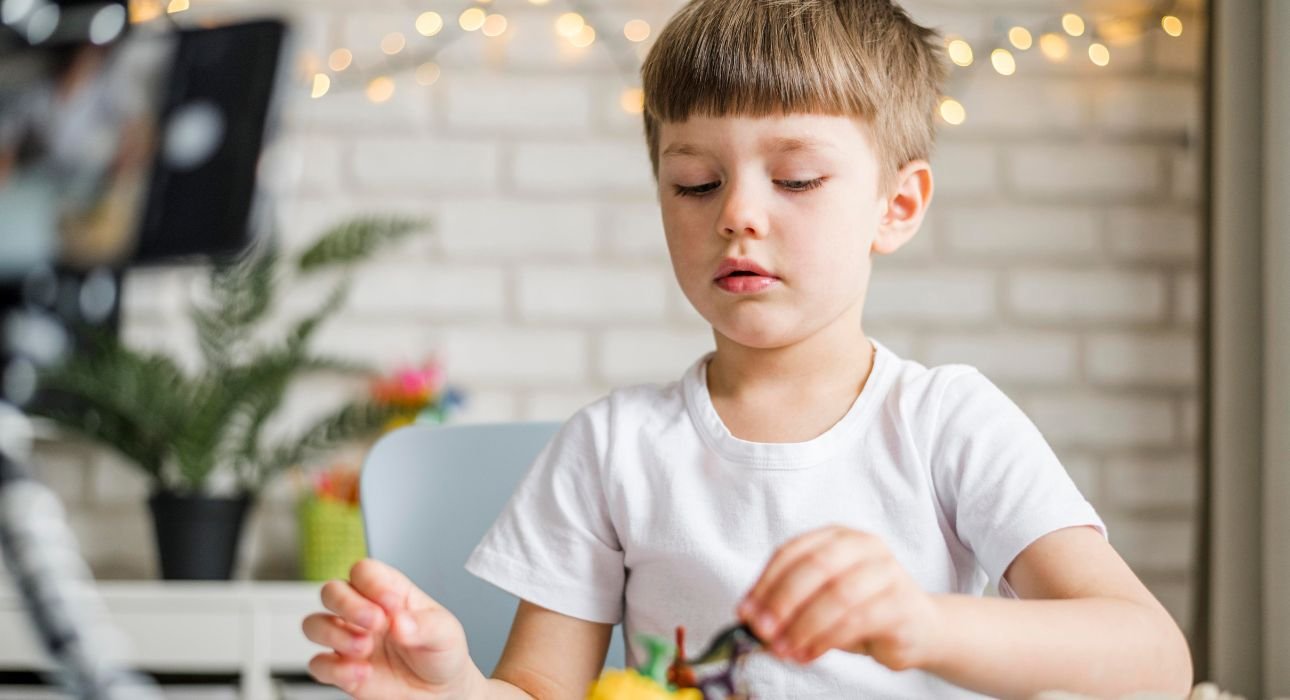Boredom or being bored is frequently viewed as negative or something to be avoided in a world where we are constantly engaged with entertainment and social media. But what if being bored turns out to be an important aspect of our childhood development rather than being a dull experience? Boredom might seem like an awful state, but it can foster children’s sense of creativity, self-control, and critical-thinking abilities.
Children, when bored, are often encouraged to use that time to imagine, introspect about their feelings, and come up with ways to keep entertaining themselves. In this article, we will examine ways in which boredom can benefit a child’s development and aid in the learning of problem-solving skills. We should give children the room to develop creatively, emotionally, and cognitively by embracing boredom.
Read More: Boredom: A gateway to creativity and self-discovery
Boredom Acts as The Best Motivation for Creativity
Children are frequently driven to use their imagination to find things to do when they are bored. In solitude, they become more creative rather than depending on technology or social media for entertainment. According to Nino (2024), in early childhood education, when children are more likely to play with their imagination, their emotional and cognitive growth becomes crucial.
They learn to handle social situations, solve problems, and think more analytically through play. In a world full of distractions, children, when bored, are more likely to find ways to innovate their lifestyle and stay grounded. (Nino, 2024) Research has also found that boredom amongst children encourages them to think outside of their comfort zones. They must think differently to come up with new experiences when they aren’t given any constant stimulation like social media. Their thought process becomes more open to approaching new challenges in novel ways.
Read More: When ADHD Goes Undiagnosed in Adulthood
Boredom and Self-Regulation
In addition to promoting creativity, boredom is necessary for children’s self-regulation development. In a world where screens and hectic schedules often distract children, boredom offers a special place to grow in emotional tolerance, patience, and resilience. Parents and caregivers can teach children coping mechanisms to deal with their feelings of discomfort instead of letting them drown in external entertainment.
Children can gain emotional control through new experiences, which becomes highly essential for long-term growth because it enables them to comprehend social situations and manage their impulses. As a result, their sense of adaptability increases, and emotional maturity strengthens. (ZeiBig, 2023) Through such experiences, a child can also learn the importance of “delayed gratification”. They are forced to either sit and wait to be entertained, or they can solve the issue on their own, developing resilience and self-control. Their sense of discomfort and tolerance, and coping skills increase by managing difficult emotions.
Boredom Promotes Independent Thinking and Problem-Solving
Children may start exploring their surroundings, using their toys in novel ways, or working on creative projects that call for creative problem-solving instead of instantly turning to adults for assistance or a screen for entertainment. According to research from the Child Mind Institute (2024), a child’s ability to solve problems can be greatly enhanced by boredom.
Unstructured time encourages children to do self-directed activities like creating games, building things, or thinking of new ideas. Because it enhances a child’s capacity for independent problem-solving and critical thought, this kind of independent thinking is crucial for cognitive development. Children gain self-confidence as a result of this autonomy because they realise they can make their entertainment and amusement. Children will gain from having the ability to solve problems and think creatively throughout their childhood and beyond.
Read More: A Beginner’s Guide to Emotional Sobriety and Inner Stability
Boredom and Emotional Growth
Additionally, boredom is important for emotional development because it helps children think more deeply about themselves and gain a better understanding of their feelings. According to Uehara and Ikegaya (2024), children can slow down and consider their emotional state when bored. In a society where distractions are everywhere, youngsters can learn to recognise heavy emotions, investigate the causes and effectively learn tools to express them. Because it fosters self-awareness and empathy for others as well.
Boredom can lead to a technique that motivates children to concentrate on the “here and now”, called mindfulness. They are more likely to be bored when things call for complete attention, like daydreaming, observing their environment, and introspection. Mindfulness, however, can improve their capacity to manage stress and regulate emotions accordingly.
Read More: Termination as a Therapeutic Tool: Fostering Growth and Autonomy
Embracing Boredom as a Developmental Tool
Parents, caregivers, and teachers should embrace boredom as a tool for children’s development rather than attempting to eliminate it. Boredom in childhood is quite normal and, when managed properly, can help children develop cognitive abilities that can further help them in work and personal settings. By allowing their children to be bored, parents can help them acquire valuable life skills.
According to ZeiBig (2023), caregivers and parents should permit their children to engage in unstructured, unscheduled times where boredom can naturally arise rather than cramming their days with planned activities. Instead of solving their problems right away, parents can help them overcome boredom by giving them chances for imaginative play and encouraging their creative quests.
Read More: The Surprising Trick to Outsmarting Boredom at Work
Conclusion
In conclusion, it can be very helpful for a child’s development, even though it may seem like a waste of time in their day. As mentioned before, it fosters creativity, resilience, and self-reliance in children’s lives by pushing them to interact with the world more deeply. Allowing children to experience boredom instead of avoiding it or forcing every moment with activities aids in the development of critical life skills. Children learn patience and problem-solving, which also enables them to explore their inner selves and find new forms of entertainment. By embracing boredom, children can slow down, think, and lay a solid foundation for their emotional and cognitive development in a culture that frequently values constant productivity and stimulation.
FAQs
1. How can boredom benefit a child’s development?
It encourages children to use their imagination, which fosters creativity and problem-solving skills. It also helps them develop self-regulation and emotional resilience as they learn to cope with feelings of discomfort without external stimulation.
2. Why is it important for children to experience boredom?
Experiencing boredom allows children to become more independent, as they find ways to entertain themselves and explore their creativity. It also teaches patience and the ability to manage frustration, essential skills for emotional development.
3. How can parents and educators support children during moments of boredom?
Parents and educators can support children by allowing them space to experience boredom while offering opportunities for creative play or reflection. Encouraging self-directed activities helps children develop independence and fosters their problem-solving skills.
References +
Child Mind Institute. (2024). The benefits of boredom. Child Mind Institute. https://childmind.org/article/the-benefits-of-boredom
Children and Screens. (2024, June). On boredom: A guide for parents and educators. Children and Screens: Institute of Digital Media and Child Development. https://www.childrenandscreens.org/learn-explore/research/on-boredom-a-guide-for parents-and-educators/
Nino, E. (2024). The role of boredom in fostering creativity in early childhood education. Early Childhood Education Research & Review. https://www.researchgate.net/publication/385418672_THE_ROLE_OF_BOREDOM_IN_F OSTERING_CREATIVITY_IN_EARLY_CHILDHOOD_EDUCATION
Uehara, I., & Ikegaya, Y. (2024). The meaning of boredom: Properly managing childhood boredom could lead to more fulfilling lives. EMBO reports, 25(6), 2515-2519.
Zeißig A. (2023). Boredom as the originator of a desideratum – reflections on the creative and suppressive consequences of boredom in the school context. Frontiers in sociology, 8, 1214069. https://doi.org/10.3389/fsoc.2023.1214069













Leave feedback about this